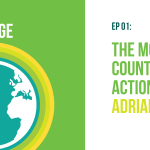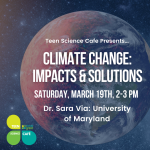Teen Science Cafe: Solutions to Plastic Waste
By Myla Leung, Teen Science Café Outreach Officer
When discussing the climate crisis, several think of issues such as climate change or global warming. What most do not realize, however, is that this crisis is not only a mere environmental crisis–it is also an epidemic of climate depression, as mentioned in Dr. Christopher White’s Teen Science Cafe presentation.
White is a Senior Managing Scientist at Exponent, a multi-disciplinary engineering and scientific consulting firm, and in his presentation, he explores the interrelation between the climate crisis and mental health. He also provides an overview of plastic waste and offers multiple solutions that teens can embrace in tackling plastic waste and the climate crisis.
In terms of the mental health crisis in relation to the climate crisis, White highlights that there is a multitude of common mental health symptoms associated with the climate crisis. These symptoms include anxiety, hopelessness, and sadness.
Although there are many people experiencing the mental health consequences from the climate crisis, they are not alone, White assures. As such, people are showing support for the climate movement all over the globe. In particular, White spotlights youth climate activist, Greta Thunberg. Known for her fierce school climate strikes and impassioned public speeches, Thunberg is an internationally recognized climate activist. She is also known for founding the movement known as Fridays for Future (School Strike for Climate).
Moreover, the climate crisis has exploded in daily news stories. One such instance White draws attention to is a disturbing 8-minute video of a sea turtle with a stream of blood draining. A plastic straw was lodged in the turtle’s nasal cavity and the video portrays researchers attempting to extract the straw. Since its release in 2015, it has accumulated over 90 million views and has “Basically collapsed the plastic straw and plastic utensil market,” White says.
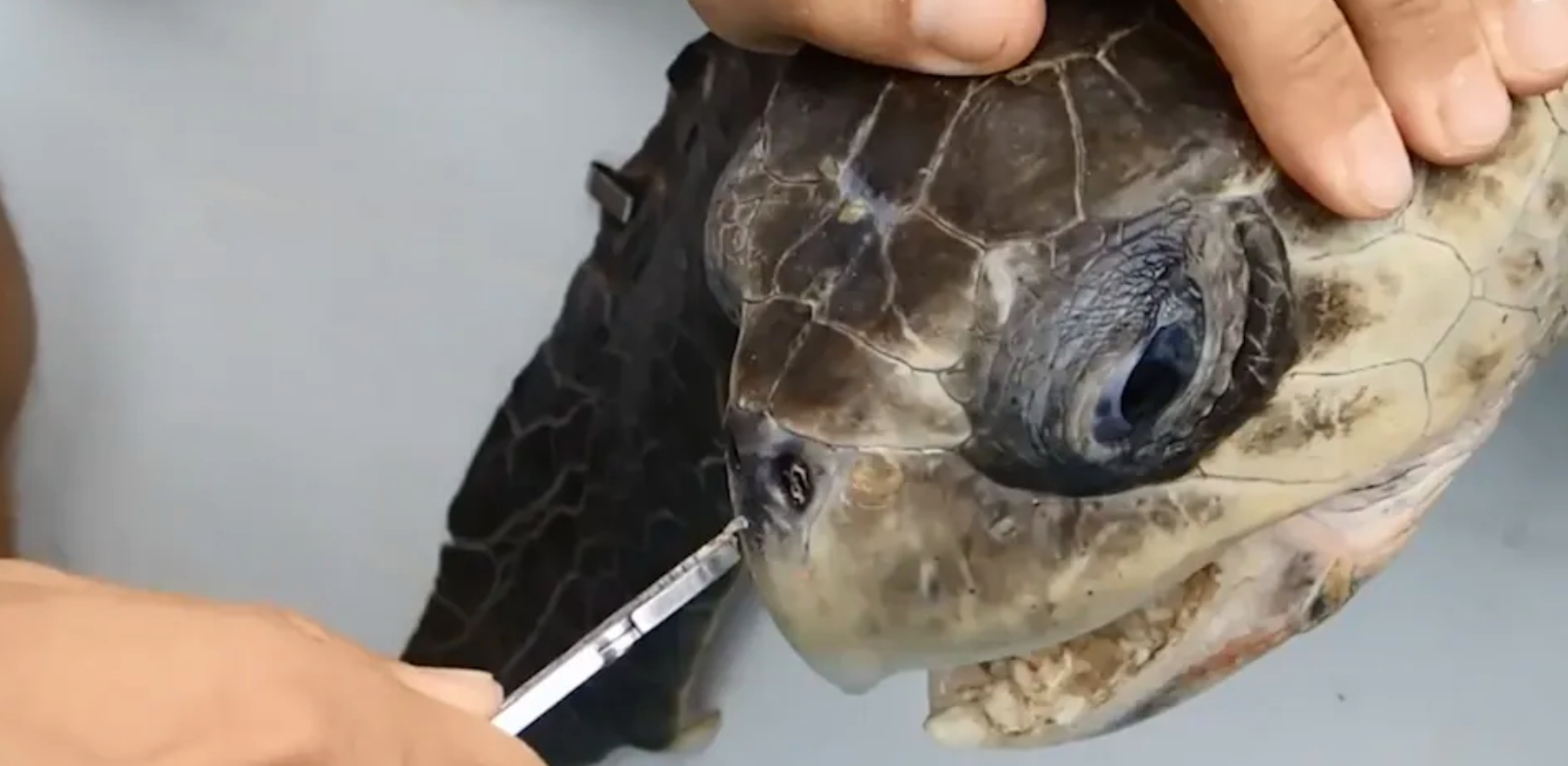
Image Source: COASTS/Youtube via The Washington Post
With activists such as Thunberg and media such as the plastic straw turtle story, it seems that the climate crisis is gathering more attention, and it turns out that those protesting against climate change have every reason to do so. Scientists observe that there is a linkage between rising global temperature and increased atmospheric carbon dioxide.
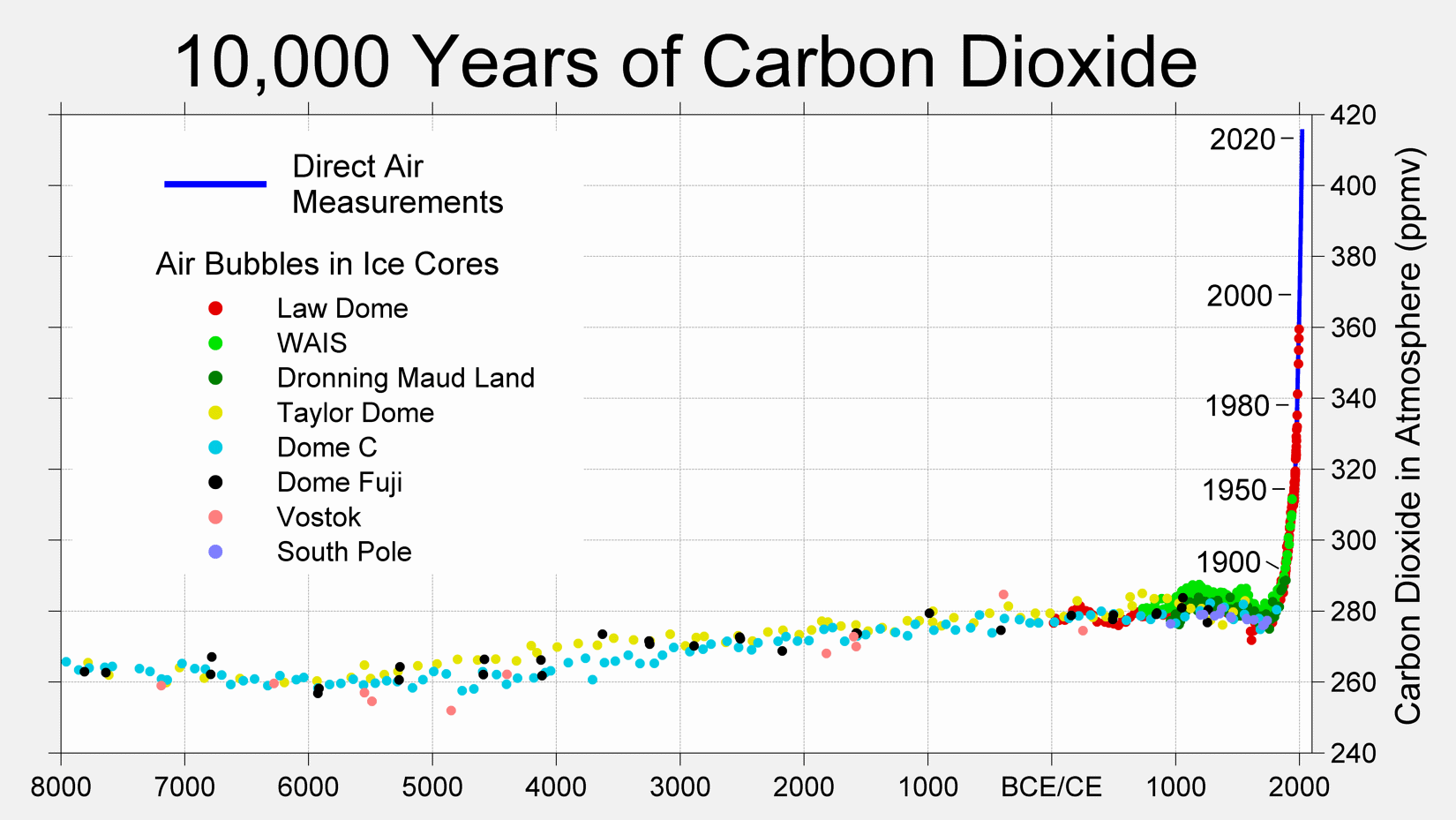 Figure 1: 10,000 Years of Carbon Dioxide Graph. Source: Berkeley Earth.
Figure 1: 10,000 Years of Carbon Dioxide Graph. Source: Berkeley Earth.
This can be seen with the COVID-19 pandemic in 2020. Since the global economy was put on hiatus for six months due to the COVID-19 pandemic, there has been a corresponding drop in Carbon Dioxide emissions. Thus, “We know that human activity is causing this rise in CO2,” White confirms.
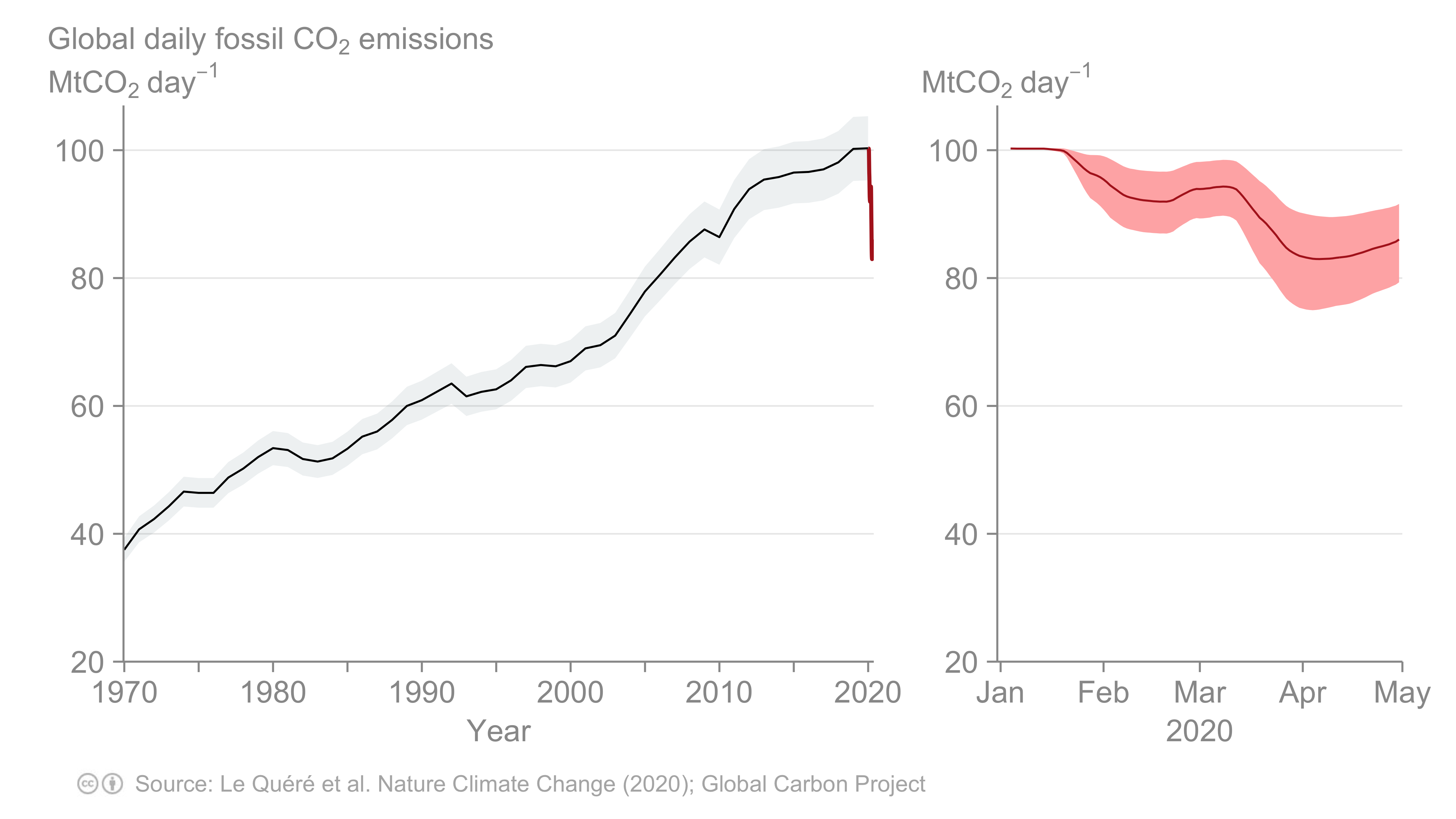 Figure 2: Global Daily Fossil CO2 Emissions. Source: Global Carbon Project.
Figure 2: Global Daily Fossil CO2 Emissions. Source: Global Carbon Project.
Next, White transitioned to the discussion of plastic waste. According to a NAS Report, the U.S. leads the world rank in plastic waste generation by producing more than all European Union nations combined. An estimated 8 million metric tons (MMT)/yr of this plastic waste enters the world’s oceans, which is equivalent to dumping a garbage truck of plastic waste into the ocean every minute.
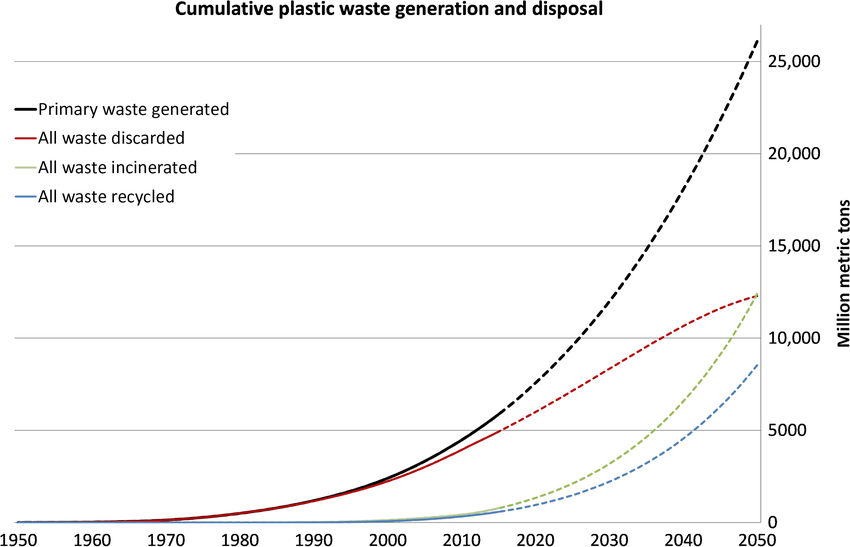
Figure 3: Cumulative Plastic Waste Generation and Disposal from “Production, use, and fate of all plastics ever made” – Scientific Figure on ResearchGate.
With such alarming statistics of plastic waste production, a negative perception of plastic packaging has naturally followed. This can also be illustrated with statistical evidence. More than 80% of survey participants said they felt it was “important or extremely important” for companies to design environmentally conscious productions. Likewise, 77% of respondents concurred that plastic waste was the least environmentally responsible type of packing, while paper was deemed the most environmentally safe material.
What shocked participants the most, however, was that in some cases, plastic may be the better option. To prove his point, White used a bottle analogy and compared the carbon footprint of a glass bottle in comparison to a plastic bottle. “Plastic is 40 times smaller in its carbon imprint than glass bottles,” White explained, as creating plastic requires less energy than creating glass.
Nonetheless, with a modern lifestyle increasingly dependent on plastic use, the rapid accumulation of plastic waste still needs to be addressed, as unfortunately, plastic can not simply “go away,” White points out. Tracing back the mental health consequences of the climate crisis, it is understandable to see why teens may feel hopeless–but it “Turns out [they’re] incredibly powerful,” White affirms. Teens can speak up, change what they buy, organize groups, and change the way they invest. And this does not only apply to teens: anyone can take action in protecting the environment. Having an education on accurate and science-based facts, being a self-advocate, changing lifestyle behaviors, and creating plans to facilitate action are all effective methods that can go a long way in protecting the environment.
This blog post is a follow-up to our Teen Science Café on Solutions to Plastic Waste. Check out our webpage to learn about future sessions and follow us on Facebook @BethesdaGreenTeenScienceCafe for more news and updates.
References:
Reckoning with the U.S. role in Global Ocean Plastic Waste. The National Academies Press | Reckoning with the U.S. Role in Global Ocean Plastic Waste. (n.d.). Retrieved February 1, 2022, from https://www.nap.edu/resource/other/dels/plastics-in-the-ocean/
Morgan, B. (2021, April 19). Customers hate plastic packaging, so why do companies keep using it? Forbes. Retrieved February 1, 2022, from https://www.forbes.com/sites/blakemorgan/2021/04/19/customers-hate-plastic-packaging-so-why-do-companies-keep-using-it/?sh=f1f84d2192c6
Hancock, M. (2021, January 14). Plastics packaging for the food and Beverage Industries: A case study in changing attitudes. IHS Markit. Retrieved February 1, 2022, from https://ihsmarkit.com/research-analysis/fandb-plastics-packaging.html
Global Carbon Project (GCP). News: Temporary reduction in daily global CO2 emissions during the COVID-19 forced confinement. (n.d.). Retrieved February 1, 2022, from https://www.globalcarbonproject.org/news/TemporaryReductionInCO2EmissionsDuringCOVID-19.html
Global Carbon Project (GCP). News: Temporary reduction in daily global CO2 emissions during the COVID-19 forced confinement. (n.d.). Retrieved February 1, 2022, from https://www.globalcarbonproject.org/news/TemporaryReductionInCO2EmissionsDuringCOVID-19.html
About the Author:
 Myla Leung, Teen Science Café Outreach Officer
Myla Leung, Teen Science Café Outreach Officer
Myla is a first Year at Winston Churchill High School and has always had a strong interest in environmental science and sustainability. She’s excited to be a part of the Teen Science Cafe team, and is looking forward to learning about ways we can protect our environment.
Interested in getting involved with the Teen Science Café? Learn more.




